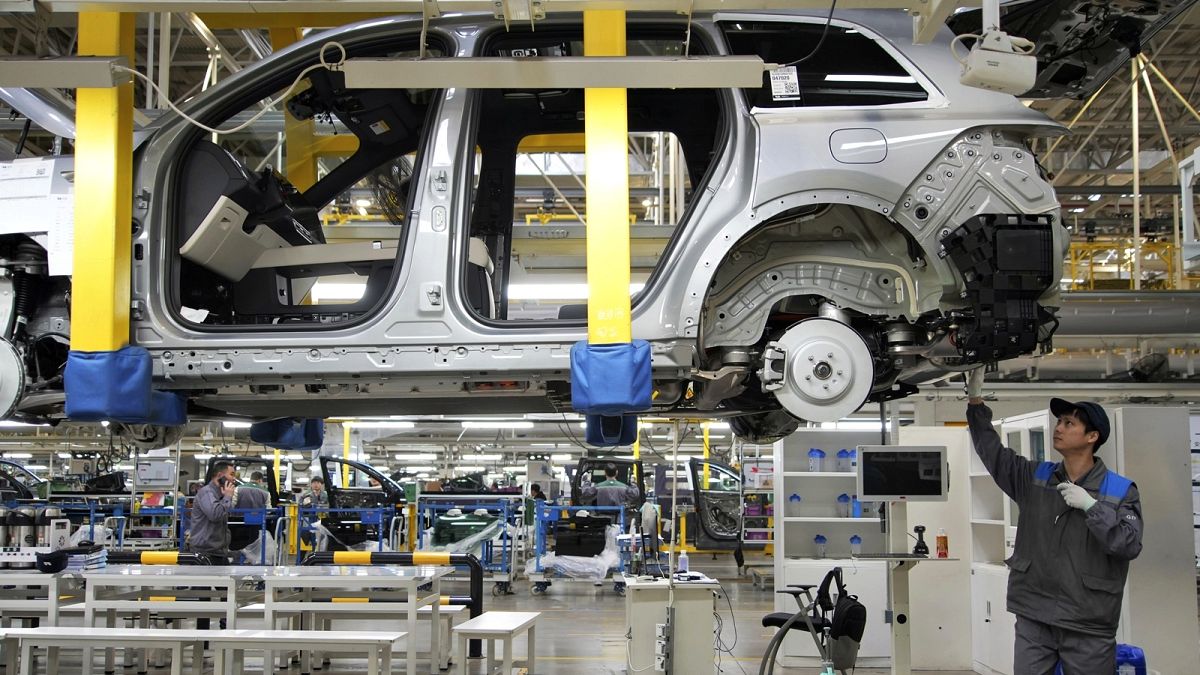Brussels worries that the continued growth of imported Chinese electric vehicles could cause an irreparable loss of competitiveness in the growing sector.
China has issued a new threat against the European Commission’s investigation into subsidies for imported electric vehicles (EVs), which could result in additional tariffs to offset the suspected use of state aid.
Chinese-made EVs are sold across the bloc at significantly lower prices than their European competitors, a gap Brussels attributes to generous financial aid injected by the Chinese government into domestic firms.
The inquiry, announced in September last year, is nearing the end of its first phase and interim duties could be announced next month. The EU currently applies a 10% tax to all imported cars, regardless of their origin.
The original June 5 deadline, however, has been pushed back until sometime after the European Parliament elections, according to Reuters and Der Spiegel.
However, the Chinese Foreign Ministry is raising its voice in an attempt to persuade the Commission not to go ahead with its plans, which it considers “protectionist”.
“China urges the EU to stop the investigation as soon as possible, so as not to disrupt China-EU economic and trade cooperation and the stability of industrial and supply chains,” ministry spokesman Mao Ning said Thursday. .
“If the EU insists on proceeding with the investigation, China will not sit idly by and watch. We will take all necessary measures to resolutely defend our legitimate rights and interests.”
The China Chamber of Commerce in the EU (CCCEU) previously said that, if the additional tariffs persist, the country could retaliate by raising its own tariffs on imported large-engine vehicles to a maximum of 25%, which would affect some European car manufacturers that depend on the Chinese market.
Beijing may also target sales of French brandy, having opened an anti-dumping investigation earlier this year. France is considered one of the strongest backers of the EU investigation.
The specter of Chinese retaliation could weigh heavily on the minds of member states, which would have to approve any increased duties by a qualified majority.
Ahead of a meeting of trade ministers in Brussels on Thursday, envoys from Sweden and Ireland expressed reservations about the Commission’s course of action, underlining the importance of maintaining free and open markets.
“From a general perspective, and I say this all the time, we’re a bit skeptical, we don’t want to get involved in any kind of trade war,” Sweden’s Johan Forssell said.
“Obviously, what’s happening in China is a problem, but there are also risks when it comes to having these kinds of tariffs,” he added.
Germany, a leading world car exporter, has also expressed doubts while Hungary, which is keen to attract Chinese investment, is strongly opposed.
Asked if the Commission was losing political support as the deadline approached, Executive Vice-President Valdis Dombrovskis said the investigation was “running its course” and any possible task would be calibrated according to evidence gathered on the ground.
“It’s a fact-based investigation,” Dombrovskis said. “We still consider it important to move forward and ensure that we are leveling the playing field in this important area of competition, in a sense using our rights to protect ourselves against market distortions.”
The commission estimates that Chinese brandssuch as BYD, Nio and Xpeng, have already captured 8% of the European market for electric cars, up from 4% in 2021 and could rise to 15% in 2025 if the trend continues unabated.
A report from the Rhodium Group shows that EU imports of electric vehicles made in China have increased from $1.6 billion (€1.5 billion) in 2020 to $11.5 billion (€10.6 billion) in 2023. The report expects the duties to be placed in the “range of 15-30 %”, but warns that Chinese brands have enough room to adjust their prices and resist growth.
In contrast, the US administration recently announced a 100% increase, piling pressure on Brussels to take a stronger stance.
